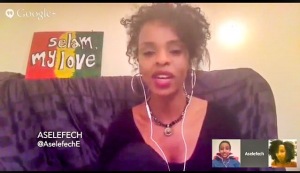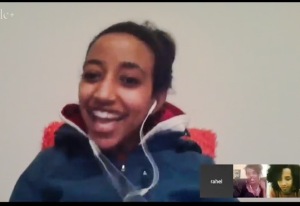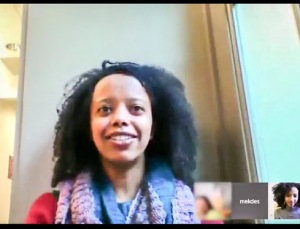National Adoption Awareness Month can be triggering for many adoptees, but it can also feel like a month of urgency to get involved and talk about adoption in a critical and transparent way. Today, I and other adoption community members, majority of them being adoptive parents (no shock there), engaged in a conference call held by the Department of State to discuss the current suspension of intercountry adoptions in Ethiopia.
While the conversation was enlightening, I couldn’t help but notice how so much of the conversations and questions was centered around advocacy efforts to push back against the Ethiopian government and to advocate on behalf of prospective adoptive parents. One person on the call even thanked the embassy for advocating for families. And for a moment, I caught myself gasping, because I thought to myself, yes adoption is a viable option for some, but shouldn’t we think about the impact it has on birth families and adoptees?
Why do adoptive parents continue to see themselves as victims when Ethiopia is pushing back on intercountry adoptions?
The State Department gave back instructions in April asking agencies not to make referrals for new adoptions, citing reasons for adoption coming to a halt due to corruption, the welfare of adopted children, and the lack of post placement reports. I would add another reason as an adoptee: the erosion of biological families, who are often left out of the conversation. However, prospective adoptive parents continue to hold a sense of entitlement and a sense of ethnocentrism which conveys that children are better off with them, and give no acknowledgment that Ethiopia’s efforts to end adoption might be positive.
Hopefully the Ethiopian government will work to reunify families and invest in family preservation efforts. As the call came to an end today, I decided to ask a question, based on the tone of the conversation, hoping that it would allow those fierce advocates for adoption to pause. My question was “Why does the State Department think Ethiopia has decided to end intercountry adoptions?” Their response walked a fine and diplomatic line, citing issues of severing cultural ties, welfare of children, and lack of post adoption reports. I honestly asked this question to see how critical their response back would be. Again, it wasn’t surprising. While they acknowledged corruption, they didn’t cite possible trafficking, the murdering of adopted children, rehoming or displacement, because their job isn’t to critically educate people invested in adoption. It is to continue to push for adoption as a viable solution despite ethical dilemmas. Many of you might read this and ask me what side I’m on, why am I so anti adoption. I’m not. Adoption has touched and impacted me in positive ways, but I and many adoptees have also been the victims of unethical practices that benefited many adoptive parents and caused birth parents pain and heartache that will last a lifetime and impact generations to come.
So my sense of advocacy comes from being a privileged adoptee who’s had the opportunity to reunite with my Ethiopian family and get answers regarding my relinquishment, but who also has spent hours on the phone with adoptees who have been harmed and paralyzed by the injustice of adoption. While I don’t know the intentions of the Ethiopia government, I hope that ending intercountry adoptions means providing services for families separated by poverty and for adoptees to have access to their birth records or any information. I’m no longer looking for the United States government to make a structural difference, despite having heard from numerous adoptees. I am sure that adoptees and their Ethiopian families need to be the ones to bring about long overdue change.






